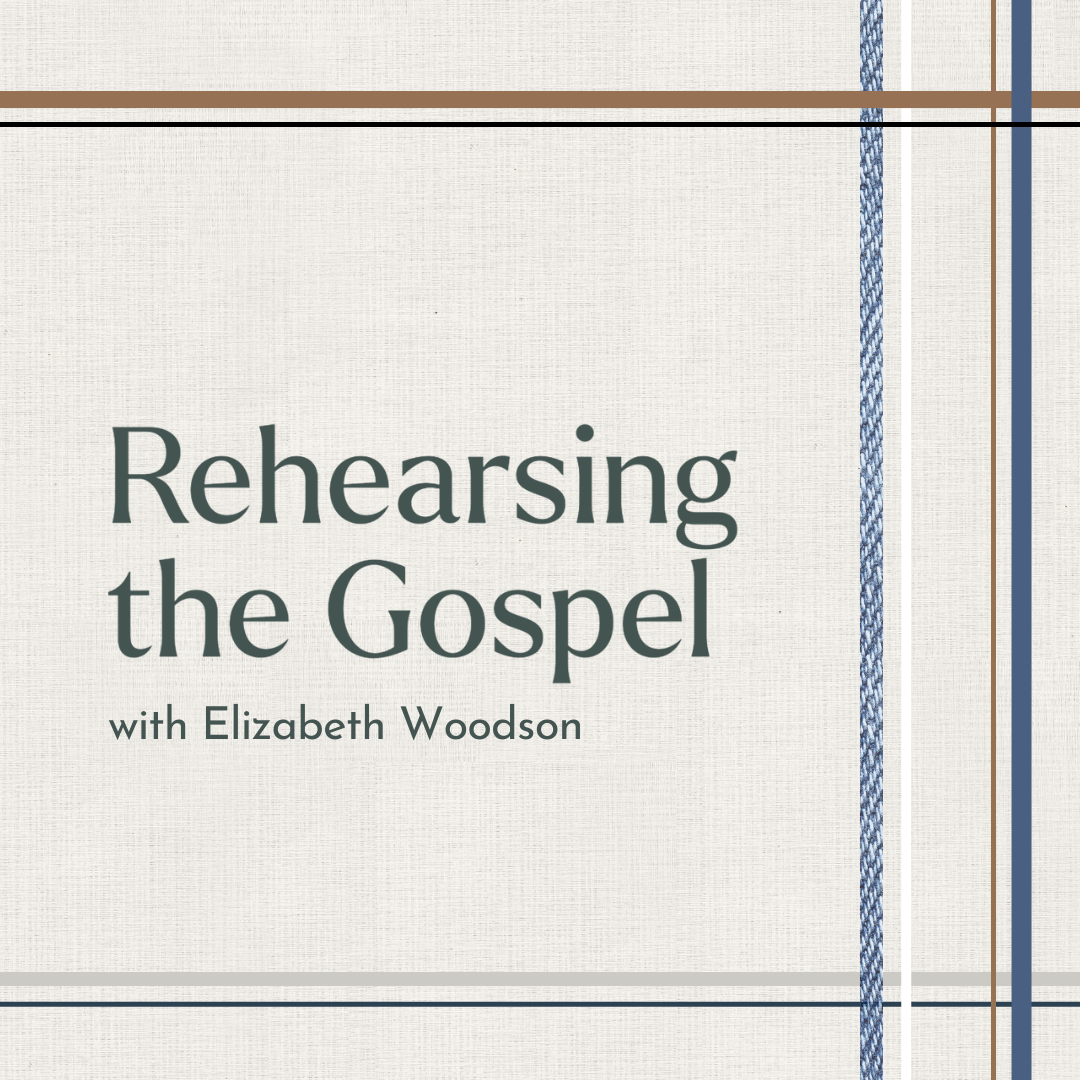Made to Worship with Natalie Brand
In this episode, Hunter talks with Natalie Brand about how we were made to worship God. They talk about what a grace it is that our self-revealing, Triune God has chosen to reveal himself to his people, and they remind listeners of the beauty and importance of good theology. We pray that this episode encourages you to strive for theological soundness in order that you might more fully love, worship, and enjoy God.
INTERVIEW QUESTIONS
What is theology? What is a theologian?
Who is concerned with theology? Why do we need it?
How does theology influence our love for God and thereby our worship of him?
What Scriptural examples do we have of women who devoted themselves to both?
Who is Priscilla? How does she model knowing and loving God through his Word?
Why is it imperative that we strive for maturity in the Christian faith?
What kind of protection would theologically sound women offer the church?
How does our personal, daily worship impact our corporate worship? What is the necessity of both?
How can we develop more of an appetite for God? What does it look like to enjoy God through the study of theology and strive to live that through daily worship?
Who has had the greatest impact on your understanding and expression of your theology?
NOTES & QUOTES
““Our Triune God in the Bible is a self-revealing God. From Genesis to Revelation, he is revealing himself to his people. And there is no extent that he doesn't go to to reveal himself.”
“The Bible is the base camp of all theology. It's our main resource; it's where we start, where God has revealed himself in his Word. Theology is an invitation by a self-revealing God to us, his people. It's an invitation, and therefore it's a grace.”
“Theology is a grace. It's not big books and dusty concepts and words we can't pronounce and concepts we can't get our head around. It's the grace of a self-revealing God inviting his people, “Come, come know me, come know me more. Feast on me and the things that I am.” He wants us to know him.”
“We talk about how we love God, but so many of us don't have an appetite to know him. And that just doesn't make any sense. To know God is to love him and to love him is to know him. It doesn't make any sense to divorce those things.”
“All the mystery that is wrapped up in our God and in his gospel moves us to worship.”
“Theology drives our worship. It's not a separate thing. It's the food and the fuel of our worship. You can't be expected to be bowed over in awe and wonder of who God is unless you're exploring who he is.”
“It's things of theology that will move you to places of excitement and exhilaration and worship and wonder.”
Insight #1—Lauren Bowerman:
“Natalie said, “You can't be expected to be bowed over in awe and wonder of who God is unless you're exploring who he is.”
It’s why our hearts swell with affection for God when we sing those rich hymns about God, isn’t it? Like “Great is Thy Faithfulness” or “In Christ Alone” or my favorite Christmas hymn (one i wish we sang all year!), “Hark the Herald Angels Sing!”
It’s why our hearts lean heavenward when we recite: “Peace on earth and mercy mild, God and sinners reconciled.” It’s why we feel the weight of God’s character a bit more as we hum, “Great is Thy faithfulness, O God my Father, There is no shadow of turning with Thee, Thou changest not, Thy compassions, they fail not, As Thou hast been, Thou forever will be.” It’s why we remember the goodness of Christ and the hope of our own salvation when we sing the very gospel put to words: “on that cross as Jesus died, The wrath of God was satisfied, For every sin on Him was laid, Here in the death of Christ I live.”
These songs lift our hearts in adoration to the Lord because they provide such specific and clear doctrine about who God is. The very words lift our eyes as we remember who God is and what he has done in Christ.
In this episode we’re not just talking about the worship songs we sing…but this helps paint the picture a bit more of how our doctrine (our understanding of God) really does fuel our worship (whether that’s our singing with our voice or our living out of our understanding of God in the daily pockets and moments of our days). Our doctrine does not merely stay in our minds, it flows out into our hearts and through our words and our hands! That, my friends, is why good doctrine and sound theology is worth eternally pursuing.”
“We need to be humble in our orthodoxy.”
“Sound doctrine protects the church, the body of Christ. If we move into error, then we no longer protect the body.”
“That's why we have a brain in our head, not to organize our bodies, but to know our Creator.”
“Every book, every page in our theology books, in our Scripture, in our commentaries, all of those pages exist to flame love for God.”
“Theology exists because worship exists.”
“Discipleship is dependent on theology and theology is dependent on discipleship.”
“Sound doctrine breeds godly living.”
Insight #2—Lauren Bowerman:
“Scripture is filled with reminders of the importance of growing in godliness, spiritual maturity, and theological doctrine. In Ephesians 4, Paul reminds us God is building up the body of his church “until we all attain to the unity of the faith and of the knowledge of the Son of God, to mature manhood, to the measure of the stature of the fullness of Christ, so that we may no longer be children, tossed to and fro by the waves and carried about by every wind of doctrine, by human cunning, by craftiness in deceitful schemes” (13-14). Hebrews 6:1 challenges believers to “leave the elementary doctrine of Christ and go on to maturity, not laying again a foundation of repentance from dead works and of faith toward God.”
Maybe this is just me, but it can sometimes be easy for me to think of “growing in spiritual maturity” as kind of another to-do or checklist item, maybe something I “should” do to be growing in my faith. I mean, even the words themselves sound a little stuffy don’t they? Spiritual maturity and theological accuracy and doctrinal integrity.
But friends, our personal pursuit of spiritual growth and maturity is not just a to-do. Our spiritual maturity is tethered to the growth and protection of others in the local church. It is essential to the body, and it is vital to our fulfillment of the Great Commission and the gospel going forth. Do you see how alllll the things we’ve discussed in this Back to the Basics series are all tying together? The gospel, Bible study, Scripture meditation, prayer, church, discipleship, evangelism, worship…These spiritual disciplines, these means and rhythms of grace, they sanctify us, they bolster our faith, and they promote our spiritual growth…not just personally, but corporately!
AND, what’s more, our growth in these things is for God’s glory and for our joy. At the end of the day these disciplines are all meant to press us into a person. The rhythms of grace are ultimately meant to draw us more deeply into the heart of God himself. As we wholeheartedly pursue to know God more accurately, we will find ourselves overflowing with love and affection for him. Our pursuit of right theology will inevitably lead us to worship and praise of the One we come to know! And our joy and worship in God brings him joy and glory.
So sisters, let’s strive for theological soundness and doctrinal accuracy and spiritual maturity…not just so that we look strong in our faith or have good answers at our next Bible study meeting…but in order that we might more fully love, worship, and enjoy God.”
“Our personal worship informs our corporate worship.”
“The man or the woman who we are at home on our knees is the measure of who we are. The measure of a Christian is his prayer life.”
“Our daily worship impacts, shapes, informs, even feeds our corporate worship, the life of the body. So we definitely need both.”
“We should never forget to simply ask the Spirit to give us more affection for Christ, to give us more hunger for the things of God.”
“Just simply pray, ‘Lord give me more of a love and hunger for you. Wean me off this world and give me a vision of how lovely you are.’”
“If you start pushing harder into God you cannot get bored spiritually, and you will find that mystery and wonder and worship is natural, and it takes you to your knees.”
“If we are reading theology and we're not driven to worship, then that's not theology. The whole point of theology is to drive us to worship.”
RESOURCES
Priscilla, Where Are You? by Natalie Brand
The Scuttlebutt Letters by Natalie Brand
Charles Spurgeon
DISCUSSION QUESTIONS
Do you consider yourself a theologian? Why or why not?
How, specifically, has your knowledge of God increased your love and worship of God?
How have you seen your personal worship and love of God impact others in the church? Or how have you been personally impacted by someone else’s love and worship of God?
What might it look like for you to enjoy God through your study of theology? How might you strive to live that out through daily worship?
What might you do or implement based on what you learned in this week’s episode?
EPISODES FROM THE BACK TO THE BASICS SERIES
ARTICLES FROM THE BACK TO THE BASICS SERIES
IMPORTANT NOTE
Journeywomen interviews are intended to serve as a springboard for continued study in the context of your local church. While we carefully select guests each week, interviews do not imply Journeywomen's endorsement of all writings and positions of the interviewee or any other resources mentioned.
Affiliate links used are used where appropriate. Thank you for supporting the products that support Journeywomen!
FOR MORE OF JOURNEYWOMEN
Subscribe: Apple Podcasts | Spotify
Follow Us: Instagram | Facebook
Support the podcast by writing a review

















